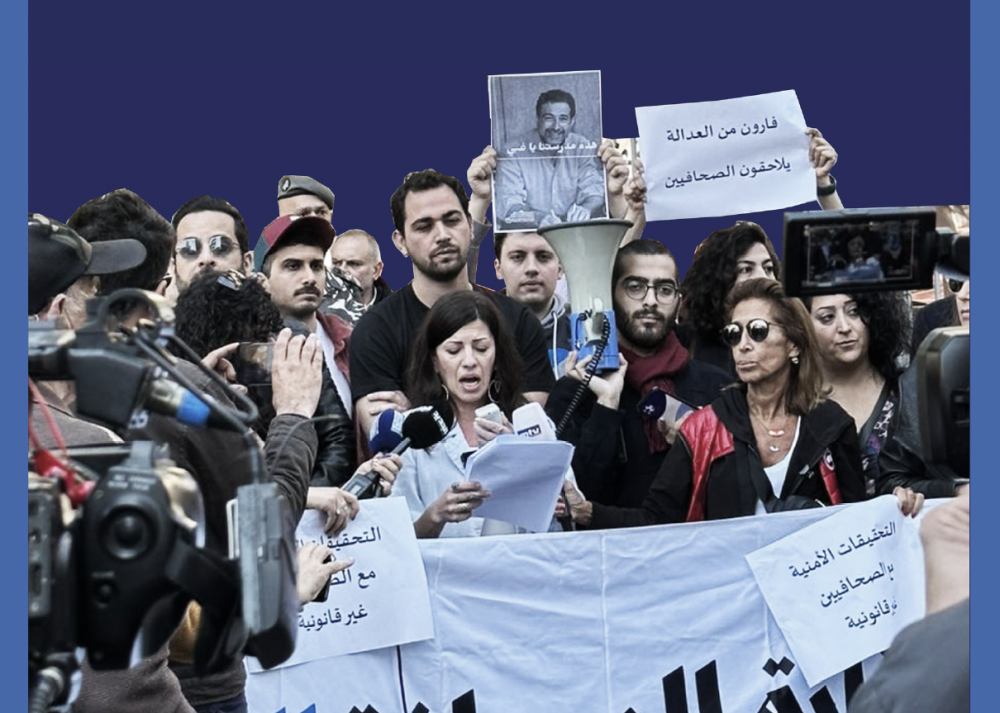
On March 30, 2023, Megaphone director Jean Kassir was summoned to the Central Investigation Directorate of the General Directorate of State Security. However, the notification deviated from the legal procedure as Kassir’s car was intercepted by two members of the State Security apparatus instead of receiving the information at his home or workplace. The summoning was partly due to the piece Megaphone published earlier in the month, which referred to wanted Lebanese government officials as “fugitives.” Public Prosecutor Judge Ghassan Oueidat, whose name was mentioned in the piece, was responsible for the summons. Due to Kassir’s nonattendance following the initial notification, Judge Oueidat sent him a second notice. It should be noted that the Public Prosecution Office is not allowed to investigate journalists for matters related to their work, making Judge Oueidat’s action a violation of proper legal procedure for the second time. Diala Shehadeh, Kassir’s attorney, attended the summons on his behalf and requested “respect for the immunity guaranteed under the Publications Law for journalists with regard to their journalistic activities.”
To gauge the Lebanese public opinion on key freedom of expression debates, the Samir Kassir Foundation (SKF) monitored social media reactions in Lebanon regarding this matter. In order to ensure accuracy and efficiency in the monitoring process, SKF has partnered with Reputell, a data service provider with access to extensive data and the software to filter through it and extract relevant content. This approach offers a safer means of understanding whether the discussion surrounding the case study was reflected in the digital arena and, if so, how. It is important to note that this study does not provide a comprehensive view of the entire digital landscape, but rather aims to highlight prominent actors, platforms used, and discern possible patterns that closely resemble real-life situations.
This report is the third in a series that employs such technology to provide a clearer picture of the discussions taking place in the Lebanese online sphere regarding controversial freedom of expression debates.
The monitoring period for this study is from March 30 – April 12, 2023